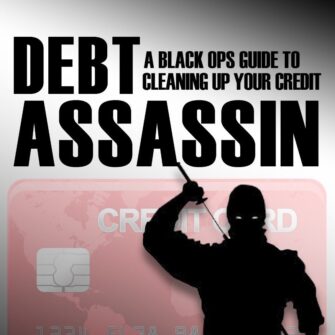How To Tell If Your Car Loan is Predatory

Depending on where you live, a car may be a necessity, and cars can be expensive! Most people can’t simply purchase a car on the spot, even if it is a used car. And that means if you want to get a new car, you will probably need a loan.
Unfortunately, many predatory lenders know that cars are vital and that people without great credit scores or financial histories may not be able to access a proper loan to get the car they need.
So how can you tell if the car loan you’re considering is predatory? Buckle in and find out!
Double-decker interest rates.
If your credit rating is in the high 700s or beyond, you’re in a position to get a “good” car loan. You can apply for a secured installment loan at an established bank or credit union, to get your car purchase funded at a low interest rate.
You will be able to repay the loan in regular, manageable monthly payments that are amortizing; meaning you will pay off a portion of the principal and interest with each payment. In this scenario, and barring a disaster, you shouldn’t get stuck in a debt hole that you can’t pay off.
However, if you have a poor credit score, you will most likely have to obtain an auto loan specifically designed for people with bad credit. This means you will need to look beyond traditional banks and consider options like “Buy Here, Pay Here” dealerships or other sub-prime lenders. And that’s where you need to be wary of predatory loans!
“The simplest definition of predatory lending is financing that imposes high interest rates or overly restrictive loan conditions,” explained RJ Mansfield, consumer's rights advocate and author of Debt Assassin: A Black Ops Guide to Cleaning Up Your Credit. “For instance, uncommonly short repayment terms and interest rates over 10% on an auto loan.”
Read that contract very, very carefully.
Predatory lenders thrive on confusing contracts. If you’re getting a car loan, it is advisable to read your contract very carefully. Consider bringing a friend who knows loan contracts, if possible.
“I advise consumers to take the time to read and understand their obligations under any contract,” Mansfield told us. “If they don't understand something, ask. If they don't get an answer they can live with, walk away.”
What sort of traps might be in that contract? Many predatory lenders will tack on as many “junk fees” as possible. You should be suspicious if you see things like “rustproofing” and “vehicle service contracts.” As Mansfield said, don’t be afraid to ask about anything and everything. If they’re trying to rush you into a deal, that’s a bad sign.
Beware of giant down payments.
Most car purchases require some kind of down payment. This is money you’re expected to pay upfront before receiving the car. When it comes to down payments, there aren't any set rules. If you have good credit, you should expect to pay around 10% to 20% of the car’s total price as a down payment. Of course, you could pay more if you’re able, and then you won’t have to pay as much interest in the long run.
However, if you’re only given the option for a much higher down payment, that should be seen as a red flag. Predatory car lenders aim to get as much money upfront because they set challenging payment conditions. They anticipate that the borrower may struggle to keep up with their payments, ultimately leading to the car being repossessed.
A large down payment allows them to get as much money as they can before seizing the car, selling it to someone else, and starting the process over again.
Make the best judgment you can.
If you have good credit, money saved up, or a potential co-signer, you’re in a good car buying situation.
If you don’t have any of those things and you need a car, you’ll have to figure out which negative loan aspects you can manage within your budget. You should try to avoid as many of these predatory aspects as you can, but you may have to make some concessions.
“If you have a credit score of under 660 you are either going to be declined, asked to make a substantially higher down-payment than normal, or approved at an extremely high interest rate,” acknowledged RJ.
“If you must have a car, is that predatory or helpful? The most important factor in borrowing is, ‘Can I afford the monthly payment?’”
We’ve provided you with red flags to look out for, but ultimately you have to assess your needs and make the final decision. We understand that owning a car might be a necessity. Hopefully, this advice will assist you find the best (or maybe the least unfavorable) car loan available.

RJ Mansfield is a consumer's rights advocate and author of Debt Assassin: A Black Ops Guide to Cleaning Up Your Credit.
Please note the below article contains links to external sites outside of OppU and Opportunity Financial, LLC. These sources, while vetted, are not affiliated with OppU. If you click on any of the links you will be sent to an external site with different terms and conditions that may differ from OppU’s policies. We recommend you do your own research before engaging in any products or services listed below. OppU is not a subject matter expert, nor does it assume responsibility if you decide to engage with any of these products or services.

